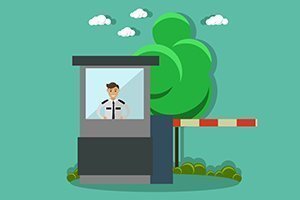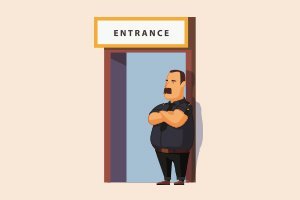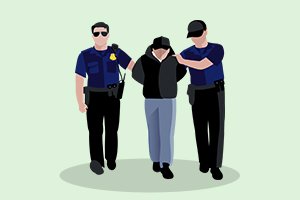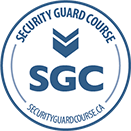Bylaw / MLEO (Municipal Law Enforcement Officer) Frequently Asked Questions
Q. Can an Ontario licensed Security Guard also be a M.L.E.O. in order to write Parking Tickets on properties they patrol?
A. Yes. If the property owners is granted this privilege and also meets all the requirements, such as proper signage etc, then they are permitted to write tickets on their properties. If they contract security services for their properties, and that contract includes Parking Enforcement duties, then the guard is now an “agent of the property owner” and permitted to write the tickets. The guard will, of course, have to be approved and appointed as a M.L.E.O. by each Municipality that the guard works in to do so if they work at multiple sites in different locations.
Q. What is a M.L.E.O.?
A. The term is sourced in section 15 of the Ontario Police Services Act. It stands for Municipal Law Enforcement Officer, a term that is unique in Canada as it ONLY applies in Ontario. When a person is hired by a Municipality or obtains authority to write Parking Tickets on private property they are captured by this term.
Q. I have completed the MLEO course. How do I go about getting my own license or number to write tickets? I had applied for a job with a company based in Toronto and they asked if I had my own number to write tickets.
A. The employer of a MLEO Parking Enforcer must obtain permission/authority from the Municipality in which they wish to issue tickets. Individuals cannot do this.
Q. What is a “Provincial Offences Officer”(P.O.O.) and what is the relationship to being appointed as a M.L.E.O.?
A. A P.O.O. is a person designated pursuant to the Provincial Offenses Act. This legislation is the enabling statute that outlines the process for Parking Tickets in Part II. It is Provincial law and not Municipal so it supersedes, and works hand in hand with, local Bylaw appointments.
FACT: EVERY M.L.E.O. is a P.O.O. You would have to be in order to write tickets and process them according to law. As an aside, not every P.O.O. is also a M.L.E.O. For example, Provincial Ministry officers who do not enforce anything at the Municipal level are not M.L.E.O.’s. They have no need to be as they only enforce Provincial laws within their Ministry.
Q. What is the difference between a “Bylaw Officer” and a M.L.E.O.?”
A. Essentially nothing, it’s just semantics and labels. They are one and the same. Every Ontario M.L.E.O. enforces Municipal Bylaws. Parking is just one area of Bylaw Enforcement.
Q. Parking Enforcement is a specialized field of work within Bylaw Enforcement. Many Municipalities have standalone departments for this purpose. Can a Bylaw Officer/M.L.E.O. who does parking enforcement ALSO do general Bylaw Enforcement or Animal Control?
A. The short answer is yes. If the Municipality hires you to do more than just Parking Enforcement, they will ask that you be trained in the other areas as well as Parking. Given that General Bylaw Services and Enforcement is also a specialized profession ie Property Standards, Noise Bylaw Enforcement, Animal Control, Licensing etc
Q. Is it true that some Municipalities are outsourcing some Bylaw Enforcement to Security companies?
A. Yes. Some smaller Municipalities are not only out sourcing Parking Enforcement but also General Bylaw services and Animal Control.
Q. Will I get a certificate once I complete the course and will it be recognized by employers?
A. Yes. Once you complete the assignments and the online quizzes successfully, you will get a certificate, suitable for framing, in the mail.
Q. Will I need to take any other training to be able to write Parking Tickets or gain the appointment as a M.L.E.O.?
A. In some Municipalities, they insist that you are trained by them in the process of how tickets are written, submitted and expectations. Only the City of Toronto currently charges an additional fee for this training. Some Municipalities will simply issue you a ticket book with instructions and specific details on when, where and how you are to use it.
Q. What if I leave Security work and go to work for a Municipality, will my M.L.E.O. training and appointment follow me and be valid?
A. If you are going to work for the same Municipality where you worked as a guard writing tickets, then yes and yes. It is valid and will follow with you. No need to repeat the training or gain a new appointment.
Q. Is M.L.E.O. officer training, including General Bylaws etc, the same as what Police Officers get at O.P.C. (Ontario Police College)?
A. Yes. Every police officer in Ontario is also a M.L.E.O. and P.O.O. Their appointment is much broader in terms of what legislation they can enforce of course, but the basic content is the same. Police do not get much involved in local Property Standards, Licencing, etc however they are empowered to write Parking Tickets, deal with Noise Bylaw complaints, Animal Bylaw offences. If this is your ultimate goal, then sign up for both the Parking Enforcement Course as well as the Core Competency program online.
Q. Is the Animal Control Bylaw Officer Course similar to the S.P.C.A. program?
A. Yes it is. We previously wrote the program and trained officers for the OSPCA as well as other Provinces. There are modules in this course that explain the difference between what local Bylaw Animal Control officers can or can’t do and the powers and authorities of SPCA agents.
Q. Does the Animal Control Bylaw Officer Course include information on the new P.A.W.S.?
A. As of January 1, 2020, the Provincial Animal Welfare Services (PAWS) Act has replaced the Ontario Society for the Prevention of Cruelty to Animals (OSPCA) Act. Transitional regulations are in place, such as carrying over the previous standards of care and administrative standards, to ensure animals are protected while long-term regulations are developed through consultation. There is a module in this course dedicated to understanding this process.









